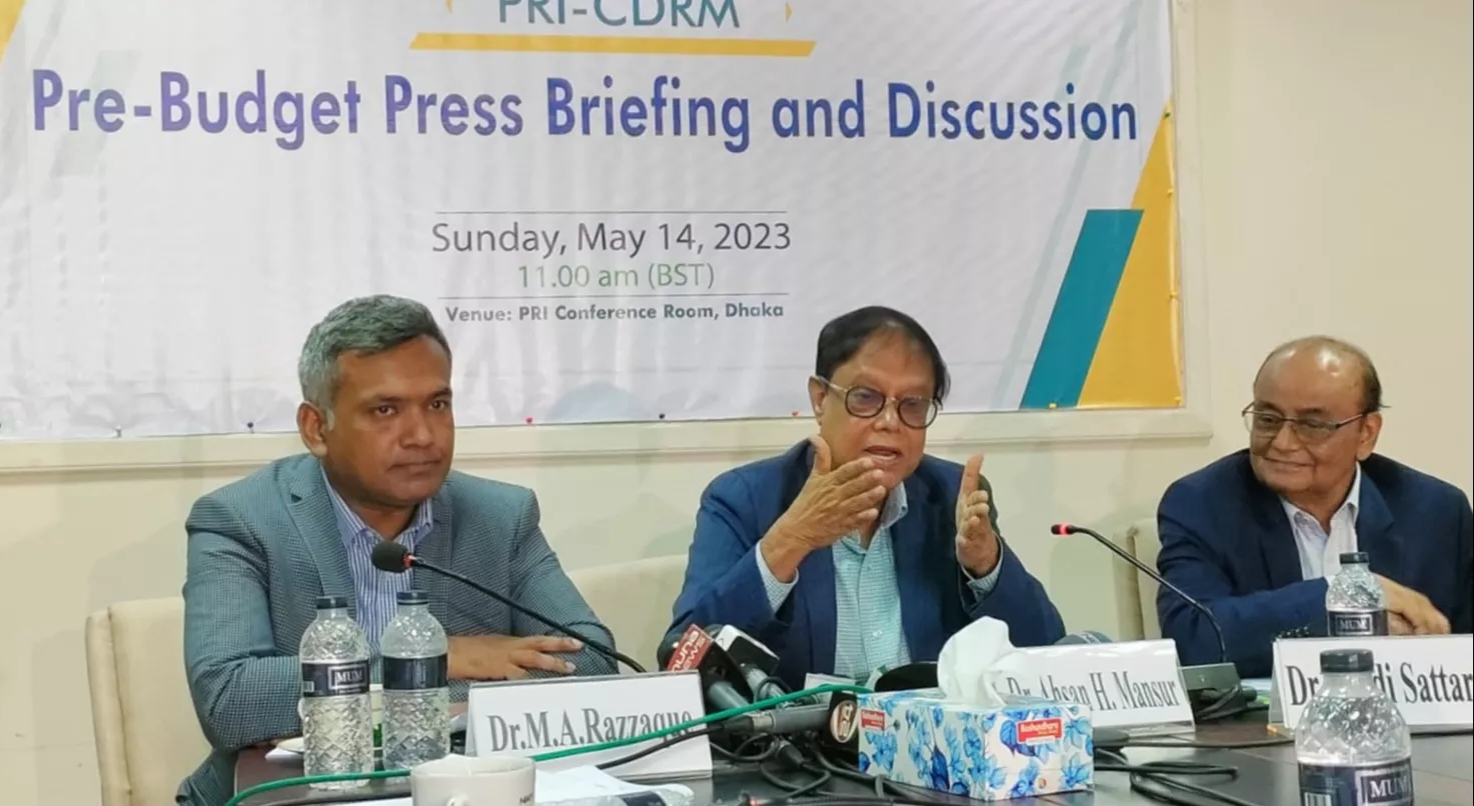Staff Correspondent
Published:2023-05-15 22:15:33 BdST
‘Strong political commitment, fundamental reforms needed to achieve revenue target’
Renowned economist and Executive Director of PRI (Policy Research Institute) Dr Ahsan H Mansur on Sunday, at a pre-budget press briefing, said that only strong political commitment and fundamental reform of the National Board of Revenue (NBR) can improve the tax-GDP ratio in Bangladesh, reports United News of Bangladesh.
He said over Tk 3 lakh crore of budget expenditure went for loans’ interest payment, pension benefits, and social safety net programme.
Mansur said despite having the potential, the gap between the target revenue and achievement is widened each fiscal Year (FY) due to the failure of existing revenue and taxation policies.
Without massive reform at banks, NBR, and other financial institutions and regulators, achieving the IMF set target in these sectors would be quite impossible, the economist observed.
Giving an example, he said in the last 9 months, Bangladesh Bank spent $12 billion from reserves, despite cutting imports by around 33 percent. This is happening due to controlling the exchange rate, he said.
Dr Zaidi Sattar, Chairman of PRI, and Dr Muhammad Abdur Razzaque, Research Director of PRI, also spoke at the event.
Dr Razzaque gave a presentation illustrating the achievements in different sectors and the government spending of the current fiscal year.
As of July 2022, the gross foreign exchange reserve was at a robust USD 39.6 billion. However, it experienced a significant reduction over the year, dropping to USD 30.34 billion by May 8, 2023, he pointed out.
Inflation also saw a sharp rise, peaking at 9.5 percent in August 2022 and maintaining an average of 8.9 percent over the subsequent 10 months, overshooting the annual target by 3.5 percentage points.
On the other hand, remittances accumulated from July 2022 to April 2023 amounted to USD 17.71 billion. The total remittance earnings will amount USD 21.26 billion in FY 23. However, this figure still falls short by USD 610.69 million of the revised remittance target outlined in the Monetary Policy Statement.
From July 2022 to April of FY23, total earnings from exports amounted to USD 45.7 billion, falling short of the target by 3.46 percent.
The IMF has also attached several conditions to its loan package to reinforce the fiscal framework of the country. One of the key IMF requirements involves bolstering revenue mobilisation efforts by an additional 0.5 percent of GDP annually in both FY24 and FY25, followed by a further 0.7 percent increase in FY26.
This implies elevating the tax-GDP ratio from the current 7.8 percent of GDP to 8.3 percent in FY24, to 8.8 percent in FY25, and finally to 9.5 percent by FY26. The IMF has also recommended the establishment of Compliance Risk Management Units within the customs and VAT wings of the National Board of Revenue by December of this year.
The PRI also recommended reforming some sectors to increase revenue earning - prioritise fiscal reforms, expand the tax net, reduce tax exemption, increase compliance with corporate tax and personal income tax, reform the VAT yield, reform state-owned enterprises, and improve the quality of spending.
Unauthorized use or reproduction of The Finance Today content for commercial purposes is strictly prohibited.


